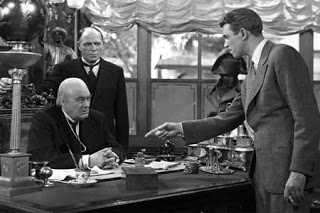Madge stumbled upon this flyer, and I had to go because I’m such a sucker for Word Art. Would you turn down an invite to an anti-porn lecture?
No, I didn’t think you would. Nor would about 20 other Perth Skeptics. The speaker had no idea what he was in for.
The sponsoring organisation was “Save the Source“. The “source” is men, or “johns” — they’re the source for all the money that goes to keep the “girls” enslaved in porn. Apparently. And just because the speaker (did anyone catch his name? I’ll have to call him Mr Source) wants to “save” men, this does not mean StS is a religious organisation. No, no. The similarity of his shtick to Judeo-Christian horseshit is purely coincidental.
Rather than describe the sight of Mr Source broken and worn down by logic, facts, and reason — yet still holding fast to his opinion! — I thought I’d present his talking points and arguments so that other can learn from the tactics of this spiritual quackery.
Some men are “addicted” to porn. This would be valid, if a valid definition of addiction were provided, which it never was.
Porn leads to prostitution. This makes no sense. Wouldn’t jacking off at home mean less employment for sex workers?
Porn leads to harder porn. The speaker imagined porn along a spectrum: A nude woman sitting in a chair on one end, and “bestiology” (his term) at the other. But this is by no means a given; it’s a slippery slope argument. Porn could be seen as a collection of genres, where people tend to gravitate toward the kinds of porn they like and leave the rest alone.
Porn leads to rape and violence. In fact, the FBI reports that rape and violence is down. Yet Mr Source claims that porn consumption is booming! How does that work?
Porn harms men. Well, asked someone, what if porn doesn’t harm a certain man? Then, says Mr Source, porn is still bad because it harms the women who act in it. What if (asked someone) a woman is is a porn film because she wants to be? For example, in amateur porn? Then it’s still bad, said Mr Source, because it harms the men who view it. This is circular reasoning. It took him a while to figure out why, but I think I got it through to him in the end.
Porn is a serious problem because he’s seen so many problems associated with it. This is actually two logical problems: confirmation bias — he notices people who have problems, but ignores people who quite enjoy porn. And if they enjoy porn, well, that’s a problem, too! Because he’s defining porn as a problem. This is begging the question, or assuming the antecedent.
Porn gives young men unrealistic expectations about what sexual acts girls ought to be doing. This may be true — inexperienced guys may have unrealistic expectations — until a girl stands up to him and tells him. But this is true for any set of expectations we might have, no matter our age or gender.
One thread that came up over and over again is that women are vessels of purity that must remain pure and unsullied, while men are the drivers of the process — the “source” of the money. Does he know that women look at porn? He does now — the audience saw to that.
In short, Mr Source wasn’t terribly concerned about any empirical work showing the downsides of porn, or using reason or logic. Instead, he chose to argue from his own personal preferences, saying that porn is bad because he knows porn is bad.
I’m a father of two teenage boys, and I’m sure that they are either looking at porn, or they will. When they do, my hope is that they’ll be able to come to me with questions or ask for information, like they already do about sex. I don’t want them to be laden down with guilt and shame about it — guilt and shame that is promoted by people like Mr Source, and converted into money for his courses and workshops.






Recent Comments